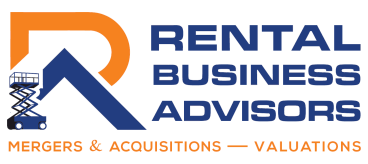We’ve said it before, we’ll say it again and then we’ll start again from the top. It never ceases to amaze us that many rental company operators do not compile monthly Profit & Loss (P&L) statements and do not update their Balance Sheets on a monthly basis.
One of the tenets of our practice is to have our clients know where you stand and that starts with monthly financial statements. Not quarterly, not semi-annually, and certainly not just on an annual basis. The best run rental companies have owners and managers that know where they stand on a DAILY basis. To know where you stand on a monthly basis is just basic stuff. If your accountant says “quarterly financials are all you need,” then you need a new accountant.
In today’s day and age, lenders, investors, shareholders and potential acquirers (along with their army of advisors) will scrutinize your business now more than ever. Not to have monthly financial statements available in a timely manner (we suggest no later than the 10th of the following month) means that you cannot sell your business for sure and likely will hamper you on the lending front as well.
Years ago, we were asked in rental forums at The Rental Show and other venues what we thought about companies that weren’t computerized. We said it is crazy and that we’ll show you that those companies are laggards in every category we track. The same can be said today for companies that don’t compile monthly financials, analyze them and manage their business with this critical data. We’d go so far as to say that if owners/managers don’t know where they stand on a weekly basis then they are not top performers in the industry.
Going a step beyond having monthly financials, you should also have the following at your fingertips on a monthly basis:
• Revenue for the most current month just ended
• Revenue for the previous month
• Revenue for same month last year
• Year-to-date revenue, current year
• Year-to-date revenue, same period last year
Remember to separate all these revenue comparisons into their components (rental, sales, by location, etc.) as well as the totals. If you are in the party or special event rental business, you should also track categories such as advance bookings, customer deposits or quotes to give you a good idea for future revenue trends.
Know where you stand at least on a monthly basis and you’ll be happy you did and so will a legion of other folks at some point in time down the road.


